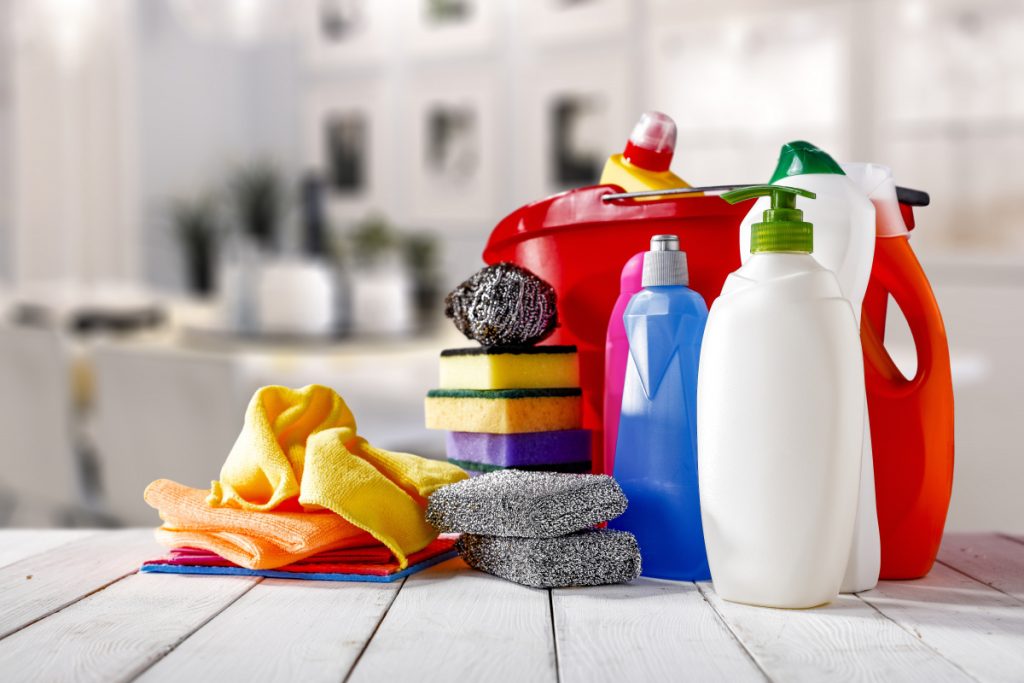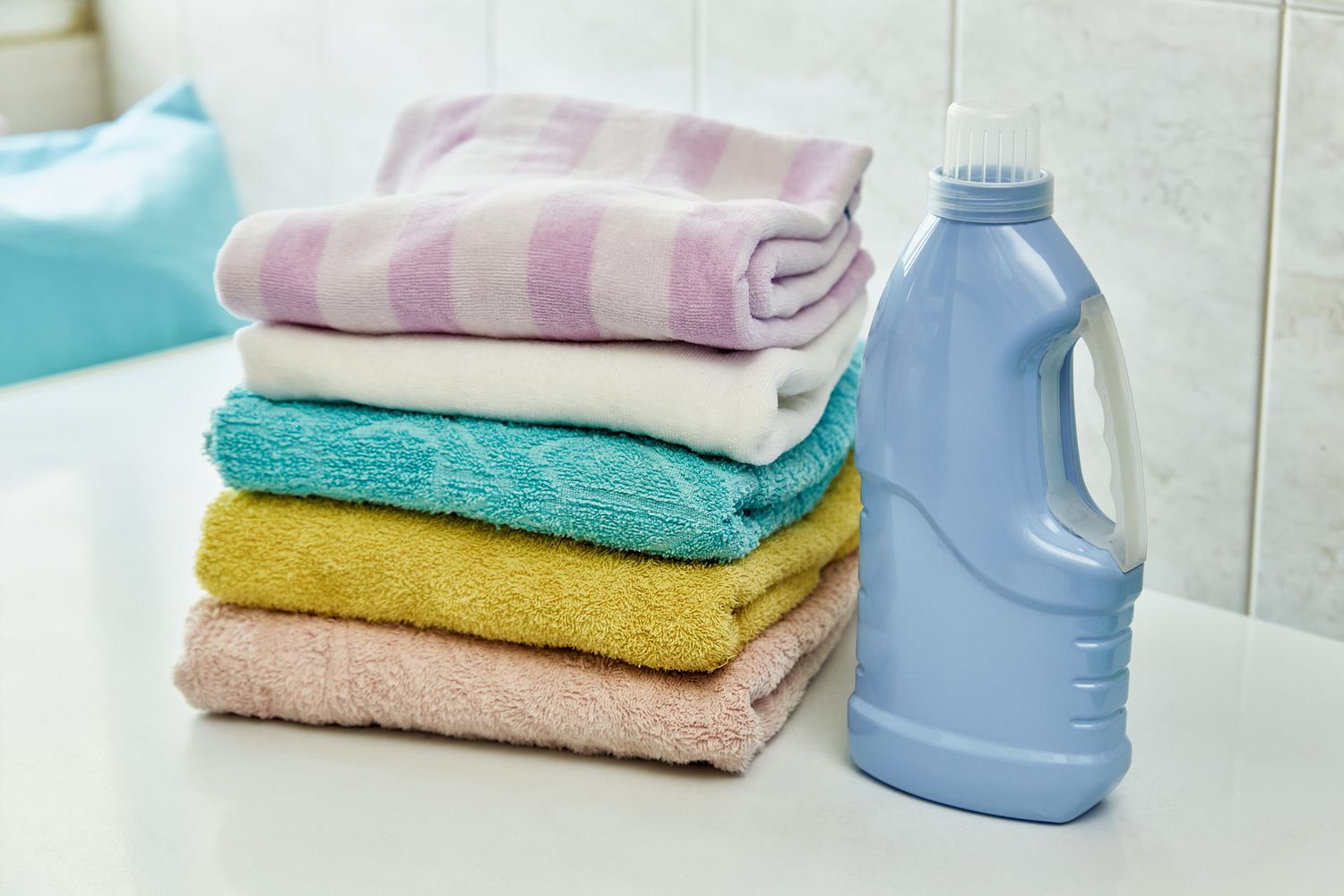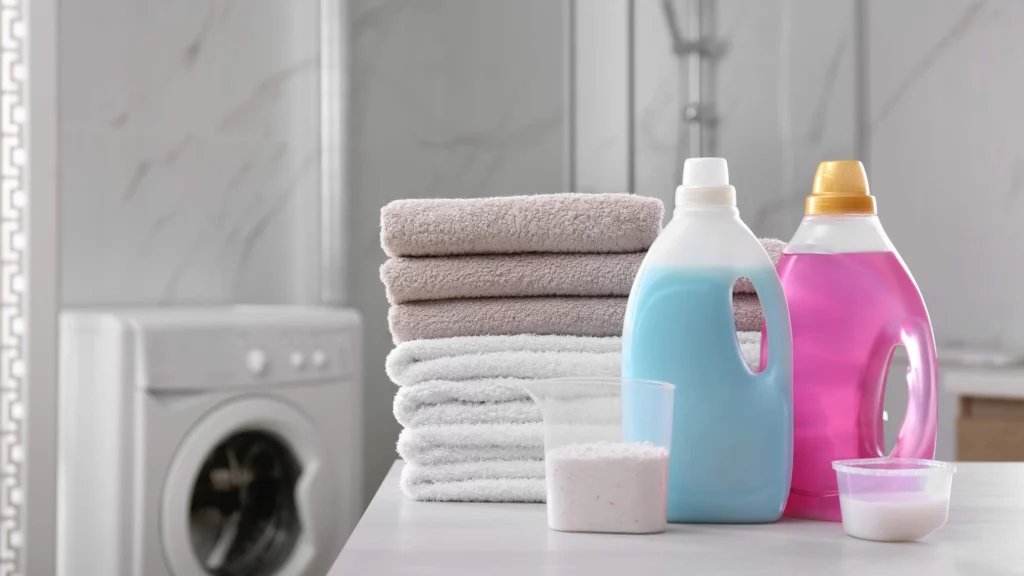
Choosing The Right Cleaning Supplies For Your Business – A Buyer’s Guide
Maintaining clean business premises is not just about appearance—it enhances employee well-being, creates a professional environment that delights customers, and...

Get 20€ off on your first order!
Choosing the right fabric softener doesn’t have to be complicated. This guide is here to help you find the perfect solution for soft, fresh, and long-lasting fabrics—whether for personal use or industry-specific needs like hospitality, automotive, or food processing.
With practical insights on types, features, and applications, you’ll feel confident selecting a product that fits your requirements. Plus, we’ll help you plan for the next step: pairing your softener with the right detergents and cleaners for a complete fabric care solution.
Let’s make fabric care simple and effective—start here!
Fabric softeners come in various forms, each catering to specific needs:
Scents can range from floral and fruity to unscented options for sensitive skin. Unscented products are ideal for those with allergies or in industries like food processing. For detailed insights, check Scented vs. Unscented Fabric Softeners: Finding the Perfect Fit for Your Laundry.
Assessing the cost-effectiveness of a product is crucial. Concentrated formulas typically offer better value per wash and align with sustainability goals. Many top suppliers, like Abena and Diversey, offer options tailored to industrial needs.

Here’s a quick comparison to help you decide:
| Feature | Liquid | Dryer Sheets | Concentrates |
| Usage | Gentle on delicate fabrics. Ideal for use with fine garments like silk or cashmere. | Quick and easy for small loads; great for everyday clothing like t-shirts. | Ideal for eco-conscious users who want reduced packaging and lower carbon footprints. |
| Residue | Minimal. Leaves fibers soft and fresh. | May be better suited for natural or mixed fabrics than synthetic options like polyester. | Minimal, and works well in hard water conditions. |
| Cost-Effectiveness | Moderate. Affordable for routine laundry. | Low. A budget-friendly option for households. | High. Best for bulk buyers and industrial applications. |
Fabric softeners are indispensable in various European industries:
For related guidance, explore Laundry Detergents: Selecting The Right Cleaning Agents.
Looking for reliable fabric softener suppliers? Here are some trusted names:
To choose the perfect fabric softener, prioritize:
For a complete fabric care solution, consider these categories:
Additionally, check out related articles like How To Choose The Right Fabric Softeners – A Buyer’s Guide.
We hope this guide has provided valuable insights into choosing the ideal fabric softeners, from understanding different types to evaluating features that suit your specific needs. Whether you’re enhancing fabric care in hospitality, manufacturing, or your everyday laundry routine, we’re here to support your journey.
Explore the complete range of Fabric Softeners on Droppe, featuring trusted suppliers like Diversey, Berner, and Kemvit, all tailored to deliver quality and performance.
Have questions or need guidance in selecting the perfect product? Reach out anytime—we’re always ready to help you make confident, informed choices.
– The Droppe Team
No, when used correctly, fabric softeners enhance fabric texture and longevity. Always follow the product’s instructions for best results.
Yes, many brands offer unscented or hypoallergenic options ideal for sensitive skin.
Store in a cool, dry place away from direct sunlight to maintain effectiveness.
Not all fabrics are suitable; avoid use on moisture-wicking, flame-resistant, or microfiber materials as it may affect their performance.
Detergent cleans your clothes, while fabric softeners enhance their feel, reduce static, and add a pleasant scent. They work best when used together.
Thank you! You've signed up for our newsletter.



















Maintaining clean business premises is not just about appearance—it enhances employee well-being, creates a professional environment that delights customers, and...

Not sure which cleaner is best for your floors? This article will provide you with all the information you need...

Choosing between solvent-based and water-based industrial cleansers can be tricky, but we’re here to make it easier. In this article,...

Maintaining clean business premises is not just about appearance—it enhances employee well-being, creates a professional environment that delights customers, and...

Not sure which cleaner is best for your floors? This article will provide you with all the information you need...

Choosing between solvent-based and water-based industrial cleansers can be tricky, but we’re here to make it easier. In this article,...
Get 10€ off on your first order!
Save 30% by buying directly from brands, and get an extra 10€ off orders over €100
Save 30% by buying directly form brands, and get an extra 10€ off orders over €100